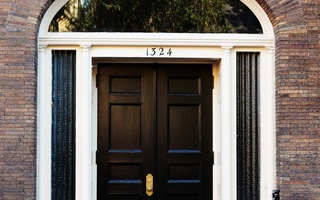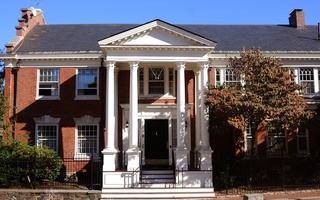Over 30 undergraduates discussed the role and practices of final clubs, from the punch process to safety at parties, at the first publicized meeting of an initiative that opposes the current state of the clubs held on Friday afternoon.
The campaign—which characterizes final clubs as unsafe, exclusive, and lacking in transparency—seeks to make on-campus social space more inclusive by asking students to steer clear of the clubs, calling on the College to make more space available for open student use, and demanding that the final clubs promote safer practices, including alcohol distribution.
“I think Harvard needs to take responsibility for the fact that its underage students are drinking,” said campaign co-organizer Seth A. Pearce ’12. “Do they want them to be drinking in spaces that they can control, or in spaces that they don’t have any control over?”
Matthew S. Coe-Odess ’12, who attended the meeting and chairs a separate Undergraduate Council task force that is looking into social life at Harvard, echoed Pearce’s sentiment, saying the College should focus on making on-campus space like the Lowell Grille available for parties.
“The best thing we can do is to create new social spaces,” Coe-Odess said.
Over the course of the hour-long discussion in the Dunster House Junior Common Room, the conversation often returned to the topic of exclusivity, especially within the male final clubs.
“I think it should be more open, and there shouldn’t be enforcement of a gender ratio” at final club parties, said discussion attendee Alexandra L. L. Almore ’12.
College to include information on final clubs at freshman and sophomore orientations and, according to its statement of purpose, “make a public statement with an official position on final clubs.”
“In conversations you have with administrators, they may highlight some problematic aspects about final clubs, but they don’t publicly make statements about it,” initiative co-organizer Sabrina G. Lee ’12 said.
In an interview, Dean of Student Life Suzy M. Nelson said that she supports all student groups and the students who participate in them—including both final clubs and groups that oppose them.
“If there is criticism among students about a group or organization, they should raise it,” Nelson said. “That’s what a college community is supposed to be about.”
The Office of Student Life does meet with the leaders of unrecognized student groups, including final clubs, fraternities, and sororities, just as they meet with leaders of recognized groups, according to Nelson.
“Our goal with the unrecognized groups is to give them information so that they can reduce harm to their own members and their guests around issues of substance abuse, hazing, and safe sexual health,” Nelson said.
All groups—including final clubs—are also required to sign and distribute state anti-hazing policies, she added.
—Staff writer Danielle J. Kolin can be reached at dkolin@fas.harvard.edu.
—Staff writer Naveen N. Srivatsa can be reached at srivatsa@fas.harvard.edu.
Read more in News
Obama Pushes Voters To Head to the PollsRecommended Articles
-
Letter Targets Final Club PunchesLast Monday a number of undergraduates received a different type of letter under their door asking students “to consider not punching a final club this fall.”
-
Final Clubs and Gender DisparityWe implore students: Do not punch male final clubs until each one makes a commitment to break down barriers and support gender inclusivity.
-
No Evening ExamsWe are very concerned about the effect this exam schedule would have on students who already become considerably stressed during the current exam schedule.
-
Blame the ClubsWhile we too find the flyers tasteless and their use of inflammatory language inappropriate and unconstructive, a response to the prank cannot be properly made without a meaningful appraisal of the role of final clubs at Harvard.
-
 Just Because You’re in a Final Club Doesn’t Mean You Think They Should Exist
Just Because You’re in a Final Club Doesn’t Mean You Think They Should Exist -
 Are All Final Club Members Really White and Rich? Our Survey Says No.
Are All Final Club Members Really White and Rich? Our Survey Says No.













